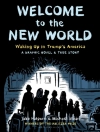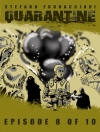This edition includes a modern introduction and a list of suggested further reading.
Resurrection combines a love story with a ferocious attack on the Russian regime. Prince Dmitrii Nekhliudov is a member of a jury trying Katiusha Maslova for murder. Before long, though, he puts himself on trial and condemns all of upper-class and official Russia. Meanwhile, once convicted, Maslova evolves from prostitute to revolutionary. In the stories of Maslova and other convicts, Leo Tolstoy depicts the hard lot of women and the disenfranchised in nineteenth-century tsarist Russia.
About the author
Count Leo Tolstoy was born in 1828 on the family estate of Yasnaya Polyana, in the Tula province, where he spent most of his early years, together with his several brothers. In 1844 he entered the University of Kazan to read Oriental Languages and later Law, but left before completing a degree. He spent the following years in a round of drinking, gambling and womanizing, until weary of his idle existence he joined an artillery regiment in the Caucasus in 1851.
He took part in the Crimean war and after the defence of Sevastopol wrote The Sevastopol Sketches (1855-6), which established his literary reputation. After leaving the army in 1856 Tolstoy spent some time mixing with the literati in St Petersburg before traveling abroad and then settling at Yasnaya Polyana, where he involved himself in the running of peasant schools and the emancipation of the serfs. His marriage to Sofya Andreyevna Behrs in 1862 marked the beginning of a period of contentment centred around family life; they had thirteen children. Tolstoy managed his vast estates, continued his educational projects, cared for his peasants and wrote both his great novels, War and Peace (1869) and Anna Karenina (1877).
During the 1870s he underwent a spiritual crisis, the moral and religious ideas that had always dogged him coming to the fore. A Confession (1879 82) marked an outward change in his life and works; he became an extreme rationalist and moralist, and in a series of pamphlets written after 1880 he rejected church and state, indicted the demands of flesh, and denounced private property. His teachings earned him numerous followers in Russia and abroad, and also led finally to his excommunication by the Russian Holy Synod in 1901. In 1910 at the age of eighty-two he fled from home ‘leaving this worldly life in order to live out my last days in peace and solitude;’ he died some days later at the station master’s house at Astapovo.
Author biography courtesy of Penguin Books LTD.












